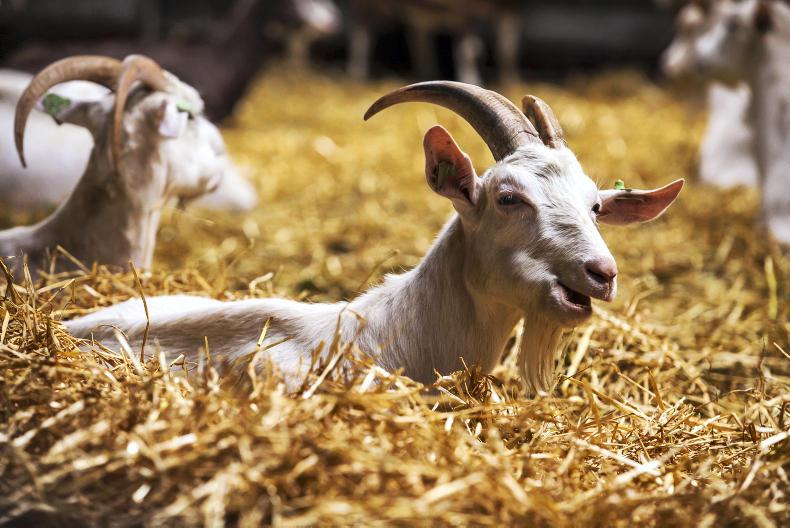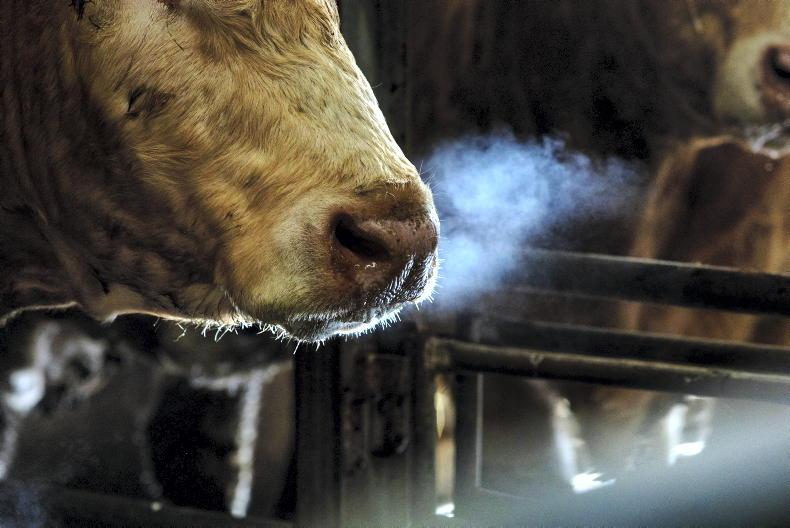An incurable goat disease has been discovered for the first time on the island of Ireland by Northern Irish authorities in Co Derry.
Caprine arthritis encephalitis (CAE) causes severe stiffening of the hind legs and swollen udders which reduce milk yield in goats.
The virus is found worldwide, but, until this detection, the disease has never been recorded on the island of Ireland.
The goat was imported from Great Britain (GB) and an initial epidemiological assessment has concluded that the most likely source of infection was at the herd of origin in GB, the chief veterinary officer (CVO) for Northern Ireland Dr Robert Huey said.
CAE adversely affects the health of goats due to pain and disability
“While CAE certainly adversely affects the health of goats due to pain and disability, the presence of this disease could potentially have serious economic implications.
“The economic impact of CAE includes reduced productivity, early culling, paralysis and death in kids, gradual drop in milk yield due to mastitis and potential damage to export sales," he added.
The disease is notifiable, but cannot be transmitted to humans.
According to the National Sheep and Goat Census carried out by the Department of Agriculture in the Republic of Ireland, there were 8,661 goats kept in registered herds in the country in December 2018.
Read more
Beef price tracker goes live as prices rise
Tories give five-year UK farm budget pledge
An incurable goat disease has been discovered for the first time on the island of Ireland by Northern Irish authorities in Co Derry.
Caprine arthritis encephalitis (CAE) causes severe stiffening of the hind legs and swollen udders which reduce milk yield in goats.
The virus is found worldwide, but, until this detection, the disease has never been recorded on the island of Ireland.
The goat was imported from Great Britain (GB) and an initial epidemiological assessment has concluded that the most likely source of infection was at the herd of origin in GB, the chief veterinary officer (CVO) for Northern Ireland Dr Robert Huey said.
CAE adversely affects the health of goats due to pain and disability
“While CAE certainly adversely affects the health of goats due to pain and disability, the presence of this disease could potentially have serious economic implications.
“The economic impact of CAE includes reduced productivity, early culling, paralysis and death in kids, gradual drop in milk yield due to mastitis and potential damage to export sales," he added.
The disease is notifiable, but cannot be transmitted to humans.
According to the National Sheep and Goat Census carried out by the Department of Agriculture in the Republic of Ireland, there were 8,661 goats kept in registered herds in the country in December 2018.
Read more
Beef price tracker goes live as prices rise
Tories give five-year UK farm budget pledge









SHARING OPTIONS